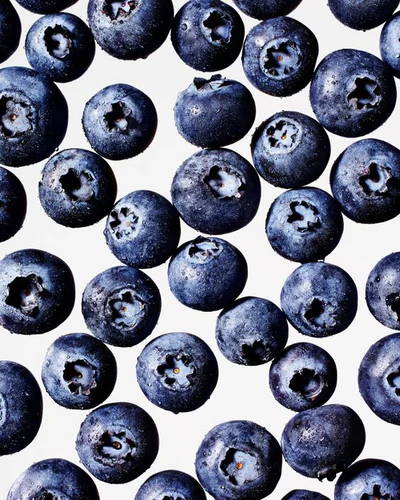renuut for your BEST shape ever
by team nuut

Cellulite cream? Check. Sunscreen? Check. Spinach? Yes! For a lean strong and healthy body, what’s in your fridge and on your fork can be as impactful as what’s in your bathroom.
We spend oodles of time and money thinking about the products we put on our face and body, but when it comes to looking lean, strong and clear skinned, what we eat can matter just as much – if not more.
Studies show that piling your plate with the right foods can transform your body from the inside out.
Sound like hard work?
We can help. The renuut 2021 meal plan is designed to take the hard work out of loving your body. Our exclusive 28 day workout and meal plan of deliciously healthy recipes will help you get lean, feel lighter, glow, and feel ready to tackle a brand new year.
In just 28 days, renuut will help you –
Lose kilos
Smash cravings
Improve gut health for better digestion
Increase energy levels
Improve absorption of nutrients from food
Encourage quality sleep
Make your skin glow
BUY RENUUT 2021 HERE
Stocking your fridge with the right ingredients is important. Here are just some of the body-loving essentials to stock up on now.
Spinach

Spinach may be one of the simplest leafy greens these days (step aside please kale!), but it truly deserves prime grocery real estate. Eating spinach can benefit eye health, reduce oxidative stress, help prevent cancer, and reduce blood pressure levels.
Studies also show that the antioxidants in spinach can improve your exercise recovery. In a small study of runners, those who ate spinach for 14 days leading up to a half marathon had lower markers of oxidative stress and muscle damage after their race compared to runners who took a placebo for the two weeks leading up to race day. We’re stocking up!
Watermelon

Watermelons contain mostly water — about 92 percent — but this deliciously summery fruit is also brimming with nutrients. Each bite boasts significant levels of vitamins A, B6 and C, lots of antioxidants and amino acids. There's even a modest amount of potassium. Plus, this quintessential summer snack is fat-free, very low in sodium and has only 40 calories per cup. Winning! Plus watermelon has super high lycopene levels — about 15 to 20 milligrams per 2-cup serving — some of the highest levels of any type of fresh produce. Lycopene is a phytonutrient, which is a naturally occurring compound in fruits and vegetables that reacts with the human body to trigger healthy reactions. It is also the red pigment that gives watermelons, tomatoes, red grapefruits and guavas their colour. To maximise your lycopene intake, let your watermelon fully ripen. The redder your watermelon gets, the higher the concentration of lycopene becomes. Beta-carotene and phenolic antioxidant content also increase as the watermelon ripens.
Chia Seeds
Did you know these little bombshells contain more omega-3 fatty acids that salmon, more fibre then flaxseed and a ton of antioxidants and minerals like phosphorus, manganese, calcium, potassium and sodium. We love them in our breakfast pudding and in our nuuts. Talk about satisfying.
Bananas

A vast variety of health benefits are associated with our favourite curvy yellow fruit. Bananas are high in potassium and pectin, a form of fibre, and a good way to get magnesium and vitamins C and B6. Bananas are known to reduce swelling, protect against developing Type 2 diabetes, aid in weight loss, strengthen the nervous system and help with production of white blood cells, due to the high level of vitamin B6 they contain.
Broccoli
A branched, green vegetable with either purple or more commonly green flower buds, broccoli belongs to the cruciferous family, along with cauliflower, cabbage and kale, and can be eaten raw or cooked, with just 80g (about 2 spears) counting as one of your five-a-day. Its nutrient-rich profile offers serious health benefits. A good source of fibre and protein, it contains iron, potassium, calcium, selenium and magnesium as well as vitamins A, C, E, K and a good array of B vitamins including folic acid.
Blueberries
These tasty little gems are higher in antioxidants than nearly any other food, delivering powerful heart-healthy benefits. In a Harvard study of more than 93,000 women, eating three servings of blueberries and strawberries each week was associated with cutting heart attack risk by more than 30 percent. And because antioxidants help prevent and slow sun damage, eating blueberries is a way to help your skin look younger, too. One more big blueberry perk: their fiber helps you feel full, so you eat less. We’re in!
Avocados

Did you know that people who eat avocados tend to be healthier than those who don't? That's according to a 2013 study (funded by the Hass Avocado Board) of more than 17,000 people. The researchers found that the avocado eaters weighed less, had less stomach fat and showed a much lower risk of metabolic syndrome - a group of symptoms that can lead to diabetes and heart disease-compared to the non-avocado fans. They also tended to eat more fruits and vegetables overall. We're betting they even had great skin: avocados are packed with vitamins C, E and K, all important for skin health. Plus, the healthy fat in avocados may help prevent wrinkles, while other nutrients help reduce sun damage.
Green Tea
Although black tea is the most popular (it accounts for around 84 percent of all tea consumed) green tea is on the rise. Our guess is that's because of green tea's potential role in weight loss. The caffeine present in green tea acts as a stimulant that has been shown to aid fat burning and improve exercise performance in various studies. The massive range of antioxidants known as catechins helps burn fat and boost metabolism that is key to lose weight.